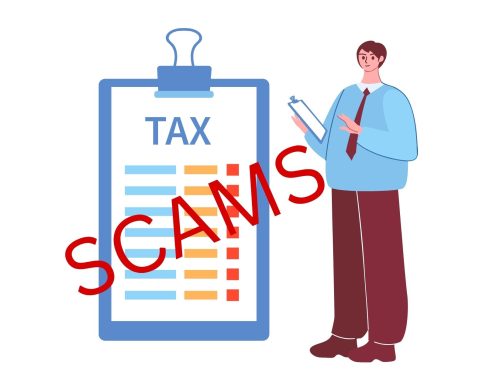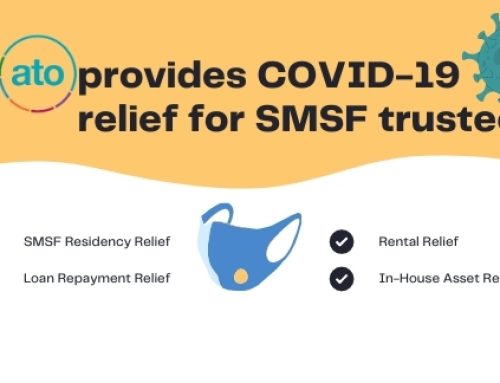Background
You planned your retirement in advance by investing in super, but due to some financial crisis you need to withdraw funds early? If the answer is yes, then you would be happy to know that there are many methods through which you as a fund member can access your superannuation before retirement without defeating law. With the ongoing effects of COVID-19 pandemic, businesses all over the world have been impacted and employees have suffered salary cuts leading to financial stress for all. During these difficult times, you might have come across one or the other scammer luring people to set up an SMSF and unlawfully access superannuation benefits before even meeting the condition of release. ATO has advised to stay away from such scammers.
When can you access your superannuation funds?
It's true that SMSFs allow its members to access funds. However, this liberty to withdraw superannuation benefit comes only upon the fulfillment of the condition of release. The responsibility to ensure that this condition is satisfied lies in the hands of the SMSF trustees. The most comm
The most common conditions of release include retirement or attaining the age of 65. However, there are some other situations where members can access their superannuation benefits before the specified time.
What happens when you don't meet condition of release?
When superannuation benefits are withdrawn by the SMSF members without meeting the condition of release or following the applicable cashing restrictions, it can cause serious compliance and tax consequences for fund trustees as well as the members. For example, ATO may consider the payment made to the member as a loan or even illegal access to superannuation benefits. If the evidences indicate that the member is obligated to pay back the superannuation benefit to the SMSF, then it is considered that the SMSF trustee has given a loan to its member or relative. Due to such non-compliance of SMSF laws, the ATO might impose administrative penalties. Alternatively, the ATO might treat the payment as illegal access to superannuation benefits, since no repayment obligation exists. The tax implication would be that the superannuation benefit would be included in the member's assessable income.
What happens in case of temporary incapacity?
A member can be said to have temporary incapacity in the case of physical or mental illness that has made the member unemployed but doesn't count as permanent incapacity. For example, suppose a member who works as a farm assistant for its employer had to stop working for 4 months due to an injury.
Condition of release in case of temporary incapacity
In order to compensate a member for the lost income due to temporary incapacity, an SMSF member who meets the condition of temporary incapacity is allowed to access the superannuation benefits. This helps the members to get relief for the income that they lost due their illness or injury.
However, there are some restrictions (known as "cashing restriction" with respect to form, amount, and period for which such benefits can be received on the grounds of temporary incapacity.
The cashing restriction includes the following areas:
Form: A member may receive an amount that reflects the reward that such member was getting before becoming ill or injured. Further, the amount is to be paid as a non-commutable income stream (NCIS) I.e., it is to be paid in instalments. The payouts can be made only from those contributions that is greater than the superannuation guarantee threshold, insurance or from reserves lying with the fund. It can't be made from the amounts related to the member's member-financed or mandated employer-financed benefits and the growth earned on such amounts.
Amount: As we stated earlier, the amount that members are allowed to access can't exceed the maximum reward that members were receiving from the employment before becoming ill or injured. In case of income protection insurance policies certain portion of the pre-injury income stream is paid by the insurer (say 75%). Moreover, such policies might include a clause that decreases the portion of insurer's obligation to the extent the insured members gain other income. Let us take a case where an insured member has a 70% monthly income protection insurance plan in addition to superannuation, then such insurance payout would be reduced by the monthly amount that is paid by the SMSF.
Time: The period for which the member can receive the amounts starts when the employment income of the member ceases due to the event of temporary incapacity and stops when the members take back the employment that was held by the member prior to illness or injury.
Is illness from COVID-19 covered?
Australians who get ill from COVID-19 or get exposed to any other illness or injury, may claim income support from their SMSF on account of temporary incapacity. However, it is important that a member keeps in mind the cashing restrictions. Availability of non-minimum benefits such as income replacement insurance, reserves or excess employer contributions are some factors that may affect the amount of NCIS. Further, the start and end period for the NCIS might be difficult to find out where the employment arranged of the member has changed after the incapacity occurs, instead of ceasing such as reduced working hours.
Conclusions
Here are some conditions that you have to consider to determine whether a member has met the condition of release in the event of temporary incapacity:
- Whether the physical or mental illness caused a member to stop work temporarily.
- The amount of the NCIS that can be paid and whether the payout can be funded out of the member's superannuation benefits.
- The expected time period after which the member is likely to return to the employment.
If the SMSF trustees are not sure about these facts, then it's better that they seek legal advice. Otherwise, the consequences can be serious for the SMSF trustee as well as the members.






